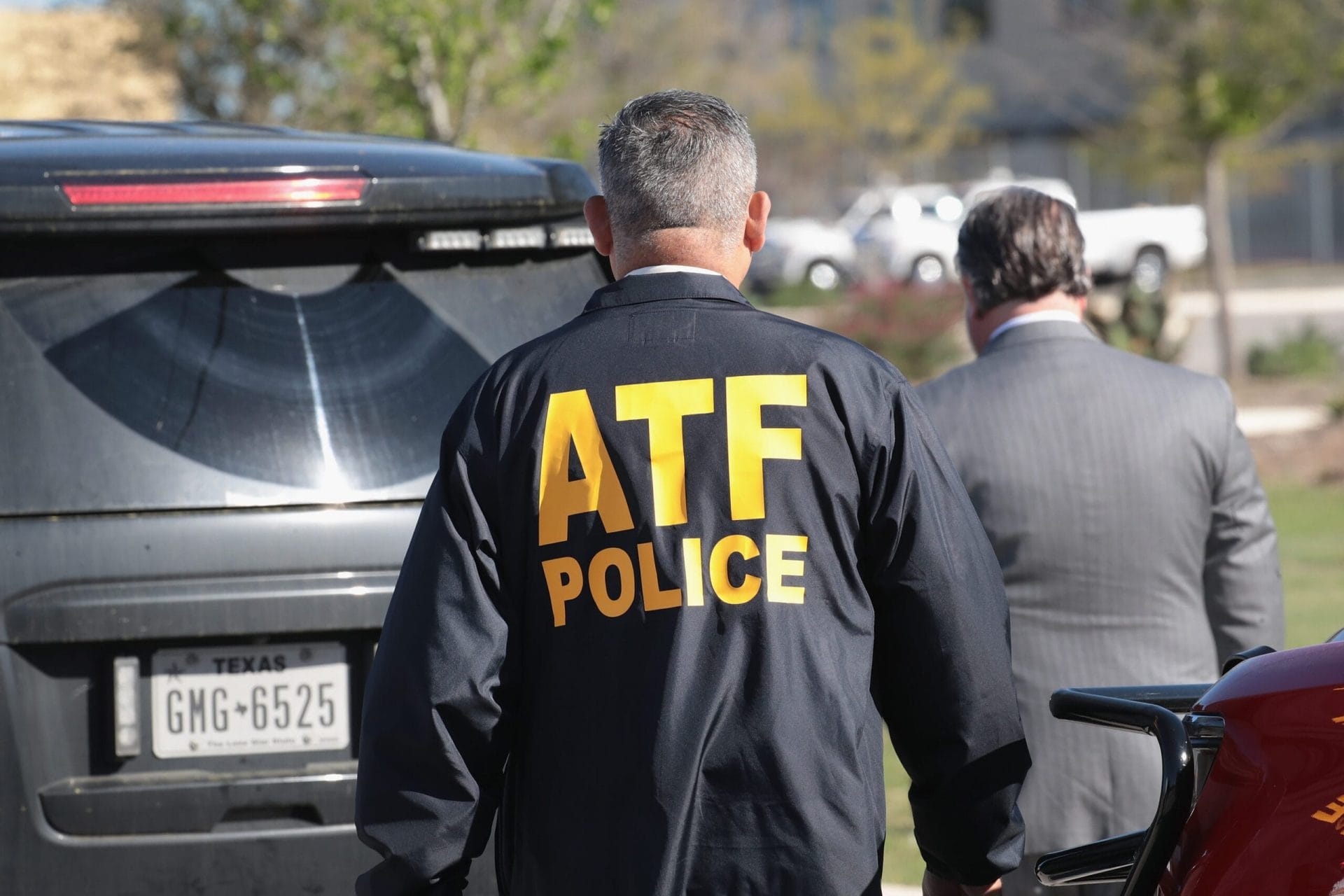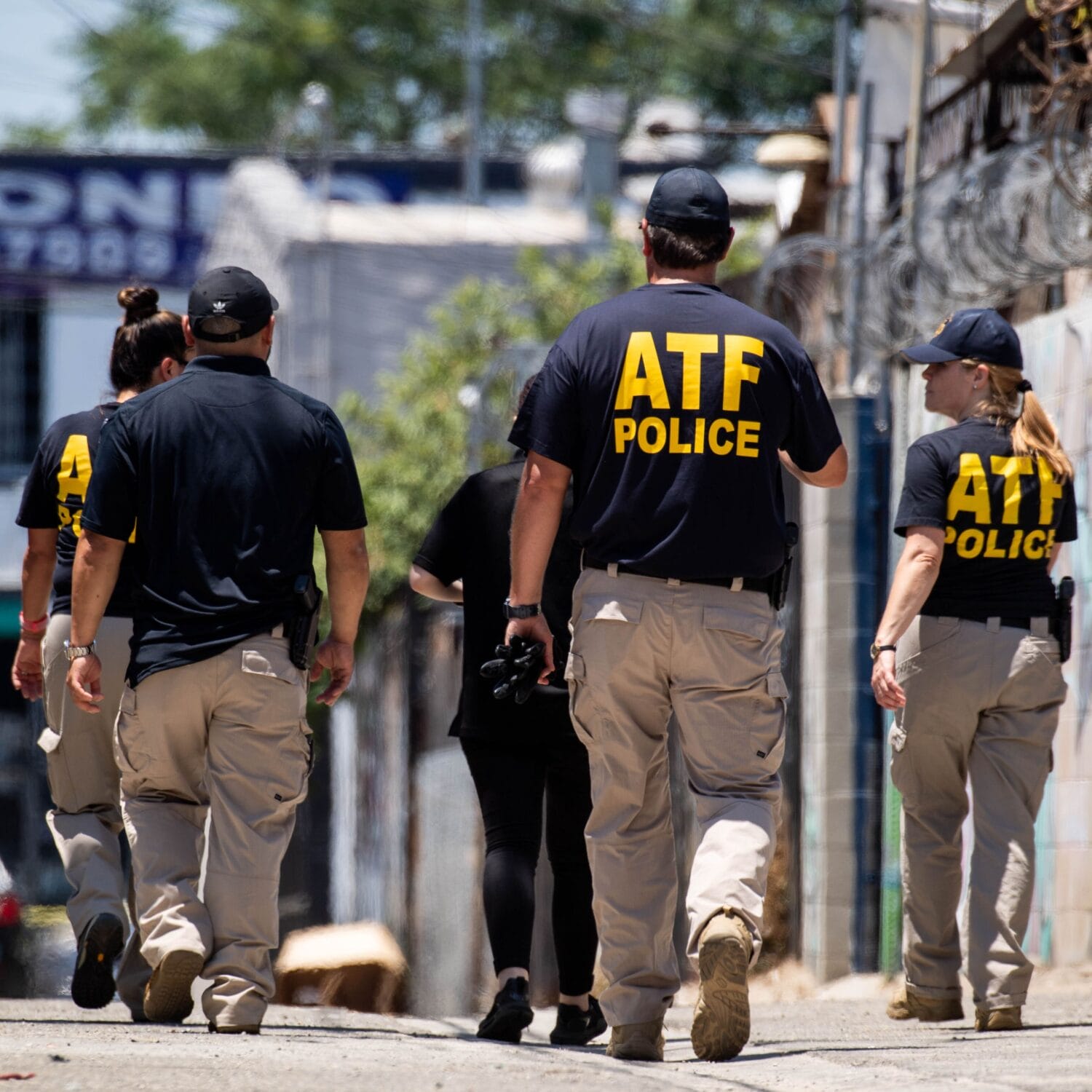
What Is the ATF?
The Bureau of Alcohol, Tobacco, Firearms and Explosives is the only federal agency that exists to stop gun crime—and it’s under attack.
The Bureau of Alcohol, Tobacco, Firearms and Explosives—otherwise known as the ATF—is a law enforcement agency within the US Department of Justice in charge of enforcing our nation’s gun laws.
Founded in 1972, the ATF’s responsibilities include upholding public safety by investigating and prosecuting federal crimes involving guns. The ATF is also the sole federal agency responsible for providing oversight of the gun industry and ensuring gun businesses comply with the law.
In addition to guns, the ATF also enforces federal laws related to the sale and distribution of tobacco, alcohol, and explosive devices. It investigates not only illegal activities related to guns, but also the illegal use and storage of explosives, acts of arson and bombings, acts of terrorism, and the illegal diversion of alcohol and tobacco products. When needed, it partners other law enforcement agencies, industries, and public safety agencies to do its job.
For example, immediately following the Boston Marathon bombing in 2013, ATF agents were on the scene looking for any remnants of the bombs that could help them trace how they were made—and by whom. The agency worked closely with the FBI and the Boston Police Department because of its expertise in explosives, and it also traced the gun one of the bombers later used, allowing police to confirm the identity of the bombers. A former ATF agent compared the agency’s job to the FBI:
Despite tracking an expansive range of products and enforcing their relevant laws, the ATF is not a very large agency, typically operating on a smaller budget and with a smaller staff than it requires. In Fiscal Year 2023 (which ran from October 1, 2022, to September 30, 2023), the ATF had 5,281 employees and operated with a $1.6 billion budget. In comparison, over the same time period the FBI employed 37,000 people and operated with an $11.3 billion budget. In fact, the ATF typically operates with fewer special agents than the Washington DC Metropolitan Police Department has sworn law enforcement officers.
The ATF has been severely underfunded and understaffed for years, making it nearly impossible to do its job properly—as well as making it very susceptible to outside pressure. The gun lobby saw an opportunity to influence the agency and jumped in, guiding its focus and enforcement of laws. Over time, and thanks to a lack of leadership and transparency, the ATF came to act as a partner to, rather than an overseer of, the gun industry.
A big part of this shift was due to the agency’s lack of senior leadership. For most of its history, the ATF operated under the Treasury Department. In 2003, the Homeland Security Act moved the ATF to the Department of Justice, granting the attorney general the power to appoint the agency’s director without confirmation. But in 2006, the NRA lobbied for and Congress enacted a new law requiring the ATF director to be nominated by the president and confirmed by the Senate, injecting politics into an agency that should only be concerned with public safety. After this law was passed, the gun lobby succeeded in defeating a number of well-qualified nominees to lead the agencies, even referring to their nominations as a “reckless betrayal.” The industry hopes that installing allies at the ATF will mean less accountability and higher profits.
The ATF has had only three Senate-confirmed directors since 2006, rendering its standard functions incredibly limited. The latest Senate-confirmed director, Steve Dettelbach, was nominated and confirmed by President Biden in 2022. As a result, the ATF under President Biden began to return to its intended purpose: enforcing our gun laws and holding the gun industry accountable when laws are broken.
In just two years in office, Dettelbach took action to:
- Stop the spread of ghost guns
- Hold accountable gun dealers who violate federal gun laws
- Enforce expanded background checks
- Crack down on gun trafficking and straw purchasing
- Ensure domestic abusers can’t possess guns
It was the most action the agency had taken to prevent gun violence in years—and it came to an end in January 2025, when Dettelbach stepped down before Trump was inaugurated for his second term.
In January, House Republicans introduced the Abolish the ATF Act in an attempt to eliminate the agency and its oversight of the gun industry. In February, as part of a flurry of nominations, Trump installed his new FBI Director Kash Patel as acting director of the ATF. Patel, a conspiracy theorist with ties to extreme gun rights organizations, has no experience with public safety and is a dangerous choice to run this agency, even temporarily.
If Congress continues to cut funding and authority at the ATF, there would no longer be a federal agency overseeing some of the deadliest products in America. The ATF will once again be unusually vulnerable to the gun industry’s influence and could refuse to enforce this nation’s gun laws—putting every American at risk.
We know that when it comes to guns, without even the concept of oversight from a federal agency, the industry will do everything it can to increase its profits—no matter the cost to public safety. We cannot let this happen.
MEDIA REQUESTS
Our experts can speak to the full spectrum of gun violence prevention issues. Have a question? Email us at media@giffords.org.
Contact



